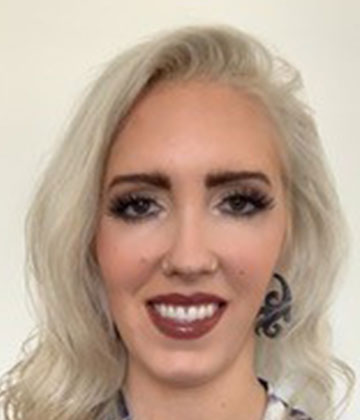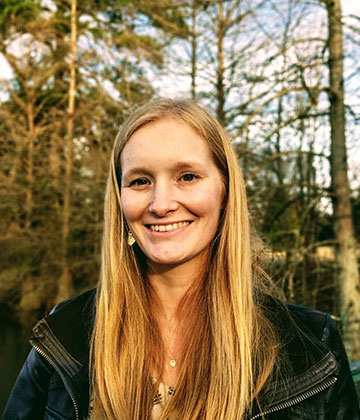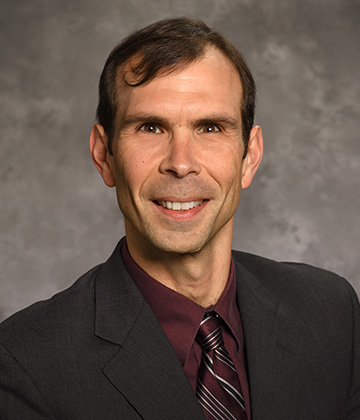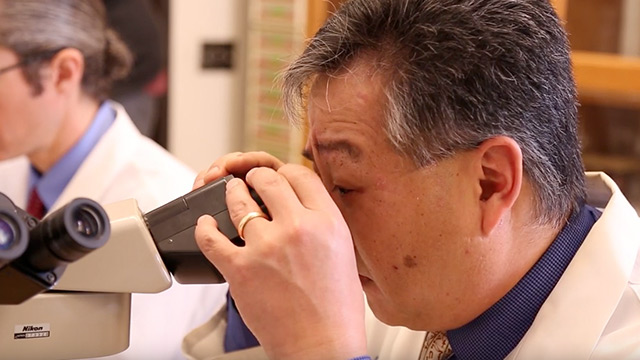2024 - 2025
Healthy Aging Study Annual Report
Over the last year, the Emory Healthy Aging Study has been examining the effects of aging on both our physical and mental health. In 2024, we achieved several remarkable milestones. Find out what we discovered, meet the researchers who made it happen, and see how our incredible participants contributed to our success.
If you had the chance to change the world, would you?
Welcome to the Emory Healthy Aging Study. This is your opportunity to partner with leading physicians at Emory University and help make discoveries that will change our understanding of aging and age-related diseases for generations to come.
It’s easy. It’s historic. It’s one for the ages.

Our 100,000 Goal
100,000 participants. That’s the number we’re aiming for, and we’re proud to say we're 26.3% of the way there. Our participants come from all ages, races, and walks of life. Because of the diversity required for this study, we utilized several different methods to reach potential candidates.
The Power in Numbers
Completing the annual Health History Questionnaire is the most important part of participating in the Emory Healthy Aging Study. Through this questionnaire, we can learn how our diets, exercise, hobbies, and health history affect the development of disease as we age. The value of the data collected through the Health History Questionnaire increases with each completion which is why we remind participants each year when it's time to update their information. So far, the data collected has been used by researchers in five different publications and continues to offer additional opportunities for analysis. 40.4% percent of study participants have completed more than one Health History Questionnaire, and we hope to see that number continue to grow.
Health History Questionnaires
Completed
Participants by Age
The mystery of aging is the entire reason for the Emory Healthy Aging Study, and therefore is an important factor in determining if a candidate is eligible to participate. While we're open to participants over the age of 18, our largest pool comes from the 56 - 75 range. These are the people that feel the effects of aging most, and are learning about their own health as well as helping the study.
Participants by Gender & Race
We are committed to diversity in the Emory Healthy Aging Study, aiming to understand how aging affects people from all backgrounds. In 2024, we have continued to make significant strides in diversifying our participant pool through our ongoing collaboration with the Goizueta Alzheimer’s Disease Research Center engagement core.
Participants by Gender

Participants by Race

Participants by Ethnicity

Wellness
Over the last year, the Emory Healthy Aging Study has been examining the effects of aging on both our physical and mental health. In 2024, we achieved several remarkable milestones. Find out what we discovered, meet the researchers who made it happen, and see how our incredible participants contributed to our success.
The Essentials
The American Heart Association's “Life’s Essential 8” is an extensive guide to maintaining and improving heart health which in turn affects the rest of your body’s health as you age. It focuses on eight key areas:
- Healthy Eating: Emphasizes a balanced diet rich in fruits, vegetables, whole grains, and lean proteins.
- Physical Activity: Encourages regular exercise, aiming for at least 150 minutes of moderate aerobic activity or 75 minutes of vigorous activity per week.
- Weight Management: Spotlights the importance of maintaining a healthy weight to reduce the risk of heart disease.
- Tobacco Avoidance: Advises against smoking and the use of tobacco products, as they significantly increase your risk of heart disease and other problems.
- Blood Pressure: Promotes managing blood pressure within a healthy range to prevent cardiovascular issues.
- Cholesterol Management: Recommends keeping cholesterol levels in check to avoid arterial blockages and heart disease.
- Blood Sugar Control: Focuses on maintaining healthy blood sugar levels to reduce the risk of diabetes, which can impact heart health.
- Sleep: Highlights the importance of getting sufficient, quality sleep, as poor sleep can contribute to various heart and brain-related problems.
By addressing these eight areas, you can take proactive steps to support your cardiovascular health and overall well-being.
The Doctor Is In
Why is it important to see a healthcare provider once a year for a physical?
An annual wellness visit, and an annual physical visit serve generally the same purpose. An annual wellness visit is a type of visit only offered under Medicare, while an annual physical is an exam available to anyone of any age. Both visits include an exam aimed at checking your overall health and identifying any issues that are currently presenting themselves or could become more serious issues in the future. An annual wellness visit, because it is available to those eligible for Medicare and therefore 65 or older, includes a fall risk assessment and a memory, hearing and depression exam. Under Medicare, routine labs are not covered, and it does not require a full physical exam.
To learn more about the annual wellness visit and its importance, watch this video from Georgia Memory Net or you can download this info sheet.
What are some questions you should be asking your healthcare provider at your next annual exam visit?
- "What tests or vaccines do I need?”
- "How do I get the results from any tests or screenings?"
- “What can I do to improve my overall health or specific condition?”
- “Are there any changes I should make to the medications I'm currently taking?”
- “How might my family medical history affect my health or risk for certain conditions?”
- “And how can I lower my risk for a condition that may run in my family?”
- “When should I schedule my next appointment with you?”
Healthy Aging Boosting Habits
(Hover over the card)
Exercise Regularly
A minimum of 2 ½ hours of moderate or 75 minutes of vigorous exercise and 2 days of resistance training per week
Cut out Vices
Do not smoke and avoid drinking heavily
Eat a Healthy Diet
Enjoying a Mediterranean-style diet, high in the nutrients your brain and body need to age well
Engage in Brain Stimulating Activities
Such as staying social, traveling, learning a new language, and playing an instrument
Resources
Discover a wealth of resources on healthy aging, including live webinars with researchers and experts, along with valuable insights and answers from leading specialists in the field.
Webinars
Take advantage of these free webinars to learn directly from the researchers and professionals here at Emory.
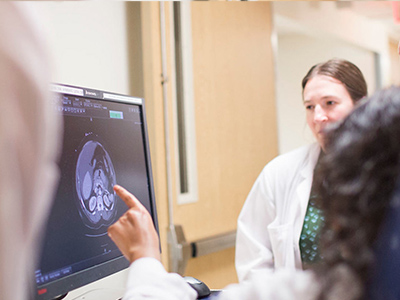
BrainTalk Live
BrainTalk Live was launched virtually to support and sustain our outreach mission for older adults. As a Core, our function is important and critical to recruit and retain individuals of color for active engagement in brain-related research. We have utilized the Zoom platform to meet the people that make up our community. This one-hour, interactive and mission-focused program has reached thousands of households to market, share, and educate individuals at-risk for memory impairment.

CEP Community Live
Every week the Charlie & Harriet Shaffer Cognitive Empowerment Program provides online educational content and/or physical activities for webinar attendees. Sessions will be led by service providers from the Cognitive Empowerment Team, and will cover topics such as cognitive training, physical activity, nutrition, yoga, tai chi, functional independence, art therapy, and much more. CEP Community Live events are open to all members of the community including people diagnosed with MCI or dementia, care partners, and clinicians.
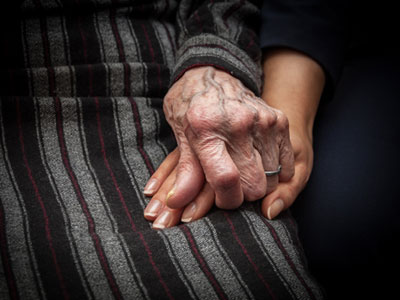
What's Next? Practical Tips After Diagnosis
Open to anyone, this webinar provides patients, care partners, and caregivers with useful information to better navigate a recent diagnosis of Mild Cognitive Impairment, Alzheimer's, or related dementia.
This webinar is held the third Wednesday of each month from 12-1pm (EST)
Partner Resources
Partners like the Georgia Memory Net and the Charlie & Harriet Shaffer Cognitive Empowerment Program also have a variety of resources available.

Living with Mild Cognitive Impairment
This resource guide was written primarily for the person diagnosed with MCI, but is also used as a guide for Care Partners. It includes information about the diagnosis, how to manage symptoms, emotional and practical coping strategies, and planning for the future, among other topics.

Telehealth Options for Alzheimer's Diagnosis
Georgia Memory Net is working to make quality dementia diagnoses available to Georgians, no matter where they live in the state. This effort includes launching telehealth options for dementia diagnostic appointments. To learn more about getting a referral, visit the the Georgia Memory Net website.
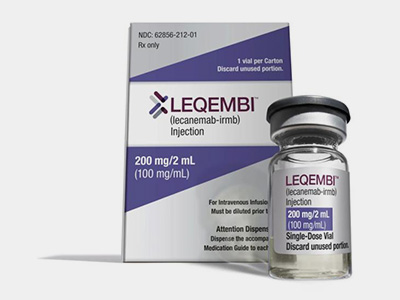
Drug Infusions for Alzheimer's Disease: Frequently Asked Questions
In July 2023 a drug called LEQEMBI (lecanemab) was granted full FDA approval. This link below shares more information associated with LEQEMBI and answers many frequently asked questions.
Research
The Emory Healthy Aging Study is a comprehensive research effort focused on understanding the complexities of aging. We investigate the broad effects of age-related diseases and conduct in-depth studies to explore how aging affects the brain.
Emory Healthy Aging Substudies & Assessments
These substudies of the Emory Healthy Aging Study help us learn more about how our brain and mental health change as we grow older.
What We’ve Learned So Far
The Emory Healthy Aging Study has already been able to utilize data collected from participants to draw some interesting preliminary conclusions on the effects of aging.
On Perceived Cognitive Decline
Within our sample, minority race, older age, and greater mood symptoms significantly predicted participant perceptions about cognitive decline. Parental history of MCI and AD did not.
Those with mood symptoms are at a higher risk of perceived cognitive decline and warrant additional monitoring for the first signs of Alzheimer’s disease.
On Our mobile toolbox
The mobile toolbox project began with the goal of having a remote method to measure cognition. By using a mobile application, people would be able to regularly engage in cognitive tasks without having to come for an in-person visit.
We compared the results of our mobile app, Arrows, with the results of an older computer test, Flanker. These tests are designed to measure processing speed, visual attention, and inhibition.
There is preliminary evidence for task reliability given the relationship between Arrows and Flanker reaction times. The majority of perfect scores on Arrows suggests a difference in difficulty from Flanker. Being able to use one hand with mobile verses the two on Flanker may contribute to this.
Future research will incorporate task modifications to increase the overall difficulty of Arrows to better allow us to compare it with Flanker.
On Purpose-in-Life
A major goal of the Emory Healthy Aging Study is to figure out what factors help reduce or eliminate cognitive decline that can come with getting older. One fascinating aspect of the brain is that positive and negative mental states can influence disease risk. Until now, the effects of these emotional states have largely focused on the detrimental effects of depressive symptoms on cognition. Using the EHAS data, Emory investigators examined the effect of purpose-in-life and asked whether it was associated with less perceived cognitive decline with advancing age. Purpose-in-life is a tendency to derive life meanings and purpose that generally stays stable throughout a person’s lifetime.
Using the unprecedented and newly acquired data on 5,000 participants of the Emory Healthy Aging Study, Emory investigators led by Aliza Wingo and Thomas Wingo found that purpose-in-life was an independent and important protective factor against cognitive decline even when considered head-to-head with other important with known protective (education, exercise, enrichment activities) and risk factors of cognition (depression, anxiety, diagnosed medical, mental health problems, smoking, alcohol use, family history of dementia, and others). Excitingly, the protective effect of purpose-in-life was observed as early as middle age. Currently, it is not known whether enhancing purpose-in-life or other psychological factors would be beneficial as an intervention. Future investigations are expected to address that important question to provide additional tools to help prevent cognitive decline with aging.
Featured Researchers
